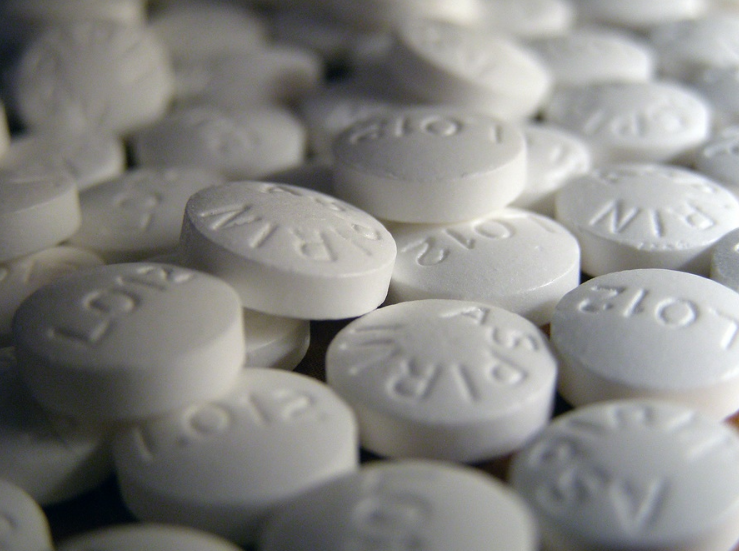Study claims aspirin cuts breast cancer risk by 47 percent in women with diabetes
10/29/2017 / By Tracey Watson

The American Diabetes Association warns that at least 9.3 percent of the population has diabetes, with 1.4 million new diagnoses in the U.S. each year. This lethal disease is the seventh leading cause of death in the country, and is often an underlying cause listed on death certificates. Type 2 diabetes is the most common form of the disease. [Related: Find out more at DiabetesScienceNews.com.]
Healthcare professionals have been aware for some time that women with diabetes have a 20 percent higher risk of developing breast cancer. A new study, published in the Journal of Women’s Health, offers an apparently simple solution to the problem: A daily dose of aspirin. But, what exactly did the study find, and is there a better way to turn this situation around?
Researchers are unclear about why diabetes makes women more susceptible to breast cancer, but some have suggested that it could be the result of body changes caused by the disease, including higher blood glucose levels and increased inflammation.
A team of researchers from the Chung Shan Medical University in Taichung, Taiwan, set out to assess the incidence of breast cancer among diabetic women who were taking a daily dose of aspirin to prevent cardiovascular disease.
For their study, the team studied data from the National Health Insurance Research Database in Taiwan, which covered the years 1998 to 2011. They identified 148,739 patients with diabetes, of whom 27,378 were taking low daily doses of aspirin (between 75 and 165 mg). The researchers then compared the health outcomes of these women with the outcomes of a comparison test group who did not take any aspirin.
The researchers determined that while low (less than 8,600 mg) and medium (8,600 to 88,900 mg) cumulative doses of aspirin had no effect on breast cancer risk, high cumulative doses (exceeding 88,900 mg) reduced the risk of breast cancer by 47 percent.
At first glance this study may appear to provide an easy solution to a serious problem. But, like so many modern medical treatments, simply accepting a diabetes diagnosis and taking a daily dose of aspirin to prevent breast cancer does nothing to resolve the underlying problem. After all, increased breast cancer risk is far from being the only health issue associated with diabetes. The American Diabetes Association warns that the disease is linked to skin infections and other skin disorders, glaucoma and other eye problems, stroke, high blood pressure, kidney disease and more.
Type 2 diabetes, which is a lifestyle disease and therefore totally preventable, is on the increase worldwide. In the U.K., for example, the incidence of diabetes increased by 75 percent in the last decade, while in the United States, diabetes diagnoses increased by over 82 percent between 1995 and 2010. These numbers have increased along with ever-expanding waistlines across the globe.
The obvious solution to the diabetes crisis is not to keep throwing more medications at the problem, but to look at its causes and stop the disease in its tracks.
Natural News previously reported, “A meta-study led by U.S. Department of Veterans Affairs research scientist Dr. Hanna Bloomfield revealed that the so-called ‘Mediterranean diet’ – which can include large amounts of monounsaturated fat and omega-3 fatty acids – lowered the risk of heart attacks and strokes by 29 percent, type 2 diabetes by 30 percent and breast cancer by 57 percent.” [Emphasis added]
The Mediterranean diet includes lots of olive oil, fish, nuts, whole grains, fresh fruit and veggies, with small amounts of meat and dairy. It does not include any of the processed “junk food” that is making the world obese and causing diabetes.
If you really want to get serious about your health, don’t start popping aspirin every day. Make sure your weight is within the desirable range for your height; eat lots of organic, non-GMO fruits and veggies; make sure your meat and dairy does not contain hormones and antibiotics; and get active, incorporating an enjoyable form of exercise into your daily routine. Focus on preventing chronic diseases like diabetes, and your body with reward you with good health and a long life. [Related: Learn to recognize the early warning signs of diabetes.]
Sources include:
Tagged Under: Aspirin, breast cancer, diabetes, prevention, women's health




















